New New Deal
We're gonna need a new New Deal.
The last one is coming up on 100 years old, and it's showing its age. Like your great grandfather's business suit - well-made American craftsmanship, but designed for a different era.
Think about the context of the original "New Deal." The word "new" wasn't just marketing - it was an implicit admission that the old deal had failed. Failed so badly that FDR had to basically rewrite the social contract between Americans and their government.
His radical notion? That in times where animal spirits failed, the government could play the role of spender of last resort to mobilize the great American engine of prosperity. A simple idea that changed everything.
But to understand why we need another update, we need to look at what these "deals" really were. Because America has been regularly patching its social contract since the beginning, each update trying to resolve contradictions that threatened to tear the whole project apart.
The Original Deal: Land, Liberty, and Contradictions
The first American deal was deceptively simple: Give us your poor, your tired, your huddled masses. Give us your labor, on this "new" land, and thousands of miles distant from the interests of thousands of years of accumulated claims over land and aristocracy (and by association, the divine), where you were free to pursue your fortune. The sky was the limit.
Now here comes the asterisk, the fly in the ointment. That land wasn't really "free" - it was stolen. And a lot of that labor wasn't given with consent. And those property rights underlying that fortune? They went a little too far in the fight between capital and labor when they said your kids were also on the line.
But let's abstract from all that for a moment, because it's in these contradictions that the pattern begins to emerge. You can build your city on a hill, but who's going to do all the laundry?
The ancient European solution - the land from which the ruling class came - said the patriarch was responsible, a form of noblesse oblige. Though he may rule with an iron fist, the deal was one of reciprocal, if uneven, obligations. Feudalism being the fractal manifestation of that idea after Rome fell.
America tried something different. Instead of kings and serfs, we got corporations and governance. That means charters, that means boards and executives, that means a whole new way of organizing society - which, given the distances involved, led to decentralized governance.
What we really got was a bunch of really annoying legal, combative, and literate(!) locals who considered themselves full British subjects, along with all that entitled. Samuel Adams in the North and Patrick Henry in the South basically process-hacked the British colonial system from the inside, using the very institutional structures set up to control the local populace as tools to mobilize, communicate, and effectively radicalize an entire collective of 13 different colonies. An ocean away and as developed as their homeland.
When that first deal broke down, it didn't just need tweaks - it needed a revolution. But the contradictions it couldn't resolve would demand an even bigger update...
From Revolution to Civil War: The Deal Breaks Again
So Adams, Franklin, and Thomas Paine blow up the King, begging the question of 'what's next?'
Turns out, you have an entire country of over-educated, over ambitious chaps basically waiting to hop on a horse & buggy and travel for months to Philly the cold and rain. Ready to live in austere conditions, away from their families, farms, and businesses, staying up all night yelling at each other about subsection five, clause four…”When you say ‘truths to be self-evident’, what exactly do you mean?”
Which sounds nice on paper, but who knows if it can effectively govern?
This is where Washington, J Adams and Hamilton come in and say, look, you need some centralization, because centralization is powerful as a coordination agent for marshalling common resources against common needs. Like defense from old empires looking to reabsorb you (oh hi, War of 1812).
Jefferson, meanwhile, is more "French" about it, worried about too much centralization. But the whole deal makes no sense anyway, because you can own people in the South but not the North and that can't work forever. But who cares, there's an entire CONTINENT of land out there, so stop complaining and go west young man!!
That's America v1.0 through v2.0. Independence through Civil War.
When this deal finally breaks, it breaks big. The Civil War is weirdly about slavery but not about slavery (if you listen to what the Confederacy says not what they do). The Northerners go, this is pretty stupid, to claim to be the land of the free and be entirely dependent on the abomination that is slavery. These Northerners, they think it goes against their religion...
The Southerners, much of the nouveau aristocratic stock derived from English slaveholding from the brutal sugar plantations of Barbados, take the idea of personal sovereignty a little too far. Drunk on the lack of their aristocratic betters, they try to duplicate the culture from which they left. Ugly and selfish hubris.
These two inconsistent notions come to a head under Lincoln. Who so believes in the evil of slavery, he has to build a new party into life in order to kill it.
He gets elected, and suddenly the "deal" is off between the states (particularly the ones in the South). Five years later 500,000 boys are dead or dying, but the deal that is America has been renewed. Along the way, Lincoln has united the coasts via rail, and with it an entire continent submits to one system, one deal, where if you don't like your lot, go west and try again. Just build something.
The original sin in this new deal being, well, that land's not actually FREE either. It was stolen from folks who didn't quite think of ownership in the same way as the Europeans, as their life didn't revolve around controlling what came out of the ground every fall.
But this deal is SO attractive, and SO in demand by peasants and paupers in Europe, that we get flooded with people. In a good way. These folks tend to congregate in ethnically homogenous ghettos near the core of our major cities, on their way to the great west. Along the way a lot plant roots downtown, and now the cities have a workforce ready for the era of physical automation.
Which brings us to the next deal update, when machines and markets would create wealth - and problems - on a scale that would make the previous contradictions look quaint...
The Market Deal: When Getting Rich Became a Birthright
In this turn-of-the-century deal, there were no guarantees. You could die from starvation just as easily in New York as in the bowels of London. But the engine was sufficiently powerful that you could expect hard work, reasonable wages, and a path to a better life for your family - especially your children - if you could manage to navigate through the cycles that came every decade or so.
And there were cycles, and there was growth, and there was expansion of the land and with it the growing pie of opportunity. Ridiculous amounts of inequality, sure, but justified by a game that was much fairer than back in old money Europe, for those willing to work for it.
Then you get the 1920s, where this internal contradiction comes to a head with the boom and bust of the stock market.
The great engine of American prosperity had a new pillar: the market itself.
Not only could you earn your way to independence via wages for your labor, you could invest in the production of others. The miracle of capital markets had opened up the idea of 'making it rich through investing' - what Marx would call the money cycle - previously reserved for Messrs. Morgan and Chase.
The boom was thus seen as another form of manifest destiny. It was the manifest destiny of every American to GET RICH! We had won the war, the Kaiser was deposed, and the world markets were more open than ever.
Then we get Smoot-Hawley. Then the bubble pops. Then the Fed decides to f*cking tighten, in the middle of the bank run.
Disaster, dust bowl, depression.
Which brings us to FDR and his notion that we could change the deal. In the past, when times got tight, we all retrenched, kicking off a tragedy of the commons. In a world where your spending is my income, if you stop buying widgets, I stop getting paid for making them. If I stop buying your doodads because I need to tighten my belt, there goes your income from making them... which turns out, is the very money that you were gonna spend on my widgets.
No bueno.
Now add debt to the whole equation... and boom.
FDR's point was that it's no one's fault when the machine breaks - it's just gonna happen. In small ways (like the existence of unemployment itself) and occasionally in big ways (like everyone you know just got fired and had their retirement accounts zeroed out). The problem wasn't lazy labor or greedy capitalists stealing all the surplus, it's that the surplus was simply shrinking due to a positive feedback cycle between spending, debt troubles, and credit.
In this context, the New Deal is a literal update to the social contract coming down all the way from Locke. A learning of the truth that markets fail, and there is a role for leveraging both the balance sheet and the checkbook of the government to centralize, socialize, and in some cases capitalize the cost of bridging that gap.
Keynes gets this from first principles, and FDR gives him a place to run experiments. Ironically the power of the checkbook comes down to that original responsibility - defense - which demonstrates the idea into a principle that becomes law.
So here we are, a hundred years later, and that deal is showing its age. Before we talk about what the next deal needs to look like, let's take stock of where the current one is broken..."
Where The Current Deal is Breaking Down
So, what's actually working in America right now? More than the doom-scrollers would have you believe:
Technology and Innovation? Check.
Economic and Cultural dominance? Still there.
Property rights? Rock solid.
Global Magnet? People still dying to get in.
Rule of Law? Mostly intact.
But the cracks in the system are becoming harder to ignore. And they're not just cracks - they're fault lines running right through the foundation of what made the American engine work in the first place.
Take inequality. Not just the normal kind that comes from some people working harder or being smarter. We're talking about the kind where your zip code determines your life expectancy. Where getting sick can bankrupt you even with insurance. Where kids are taking on mortgage-sized debt just to get the education their parents got for the price of a used car.
Our infrastructure? Drive to JFK, try to take an Uber from LAX, you'll get a ruptured C6/C7 disc for your trouble. The country that built the Interstate Highway System now can't fix its own bridges.
Manufacturing? We're behind. Uncompetitive. Boeing is a sh*tshow. Meanwhile, China built more high-speed rail in a decade than we built highways in half a century.
But the real problem isn't any one of these things. It's that they're all connected in a way that makes them harder to fix. Like that old FDR positive feedback loop, but in reverse:
Can't fix infrastructure without manufacturing.
Can't fix manufacturing without education.
Can't fix education while everyone's drowning in debt.
Can't fix the debt problem without better jobs.
Can't get better jobs without fixing manufacturing and infrastructure.
See the problem?
And all of this is happening while the global system that underpinned the last deal is changing. The world where America could be both the world's biggest consumer and its reserve currency? That's ending. The idea that we could trade freely with everyone while also containing their military ambitions? That contradiction is coming due.
Just look at what's happening with Russia and China. Our old plan was simple: trade with them until they become like us. Peace through commerce, democracy through prosperity. Worked great with Europe and Japan after WWII, right?
Except now Russia's selling energy to China, getting weapons and soldiers from North Korea, and starting to think gold and silver look better than dollars. Meanwhile China's eyeing Taiwan's chips the way Japan once looked at Indonesian oil. And our traditional allies? They're starting to hedge their bets.
The old deal was based on America being the uncontested leader of the global economic order. But in a world where that order itself is fragmenting, we need a new approach. One that recognizes both our strengths and our limitations. One that can turn these crises into opportunities.
Like FDR looking at the Depression, we need to recognize that the old rules aren't working anymore. Not because they were wrong but because the world has changed. Time for an upgrade.
So where does this leave us? Like every previous version of the American deal, we're hitting the limits of the current system's contradictions:
We're simultaneously the most innovative economy in the world and can't build apartments in San Francisco.
We're the global financial superpower but our own citizens can't afford houses in their hometowns.
We're the world's greatest university system but our kids are drowning in student debt.
We're the military hyperpower but can't secure our own supply chains.
Each of these contradictions echoes the past. Like the 1850s, we're divided into camps that can barely speak to each other. Like the 1920s, we're watching market wealth concentrate in ways that strain social cohesion. Like the 1930s, we're seeing the international order fragment in dangerous ways.
But here's the thing about America - we're actually pretty good at reinventing ourselves when we have to. The country that went from civil war to world power, from depression to arsenal of democracy, from cold war to digital revolution... we've got some experience with upgrades.
What we're not so good at is doing it early. We tend to wait until the crisis is undeniable. Until the contradictions become too acute to ignore. Until, as FDR put it, we have nothing to fear but fear itself - because everything else we were afraid of has already happened.
The good news? We're not there yet. The bad news? We're heading there faster than most people realize.
Remember how gold has outperformed bonds by 70% since 2020? That's not just a trade - it's the market sniffing out these contradictions. When the world gets weird, people reach for the hard stuff. They're not buying gold because they're bullish on jewelry.
They're buying it because they can see what we've been talking about. The old deal is showing its age, and the next one isn't here yet.
Next time, we'll lay out what that new deal might look like. The big infrastructure projects, the economic reforms, the institutional updates needed to resolve these contradictions. Some of it will sound crazy - like Social Security probably did in 1935. Some of it will be controversial - like every major American reform has been.
But all of it will be aimed at the same goal every previous deal update had: taking America's core strengths and adapting them to new realities.
Because that's the real secret of American renewal - we don't just patch the system, we rebuild it. Sometimes by choice, sometimes by necessity, but we rebuild it.
Time to start drawing up the plans.
Till next time...
Disclaimers



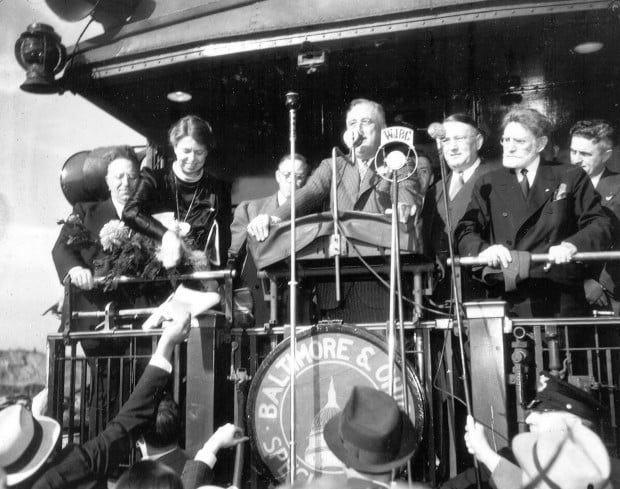
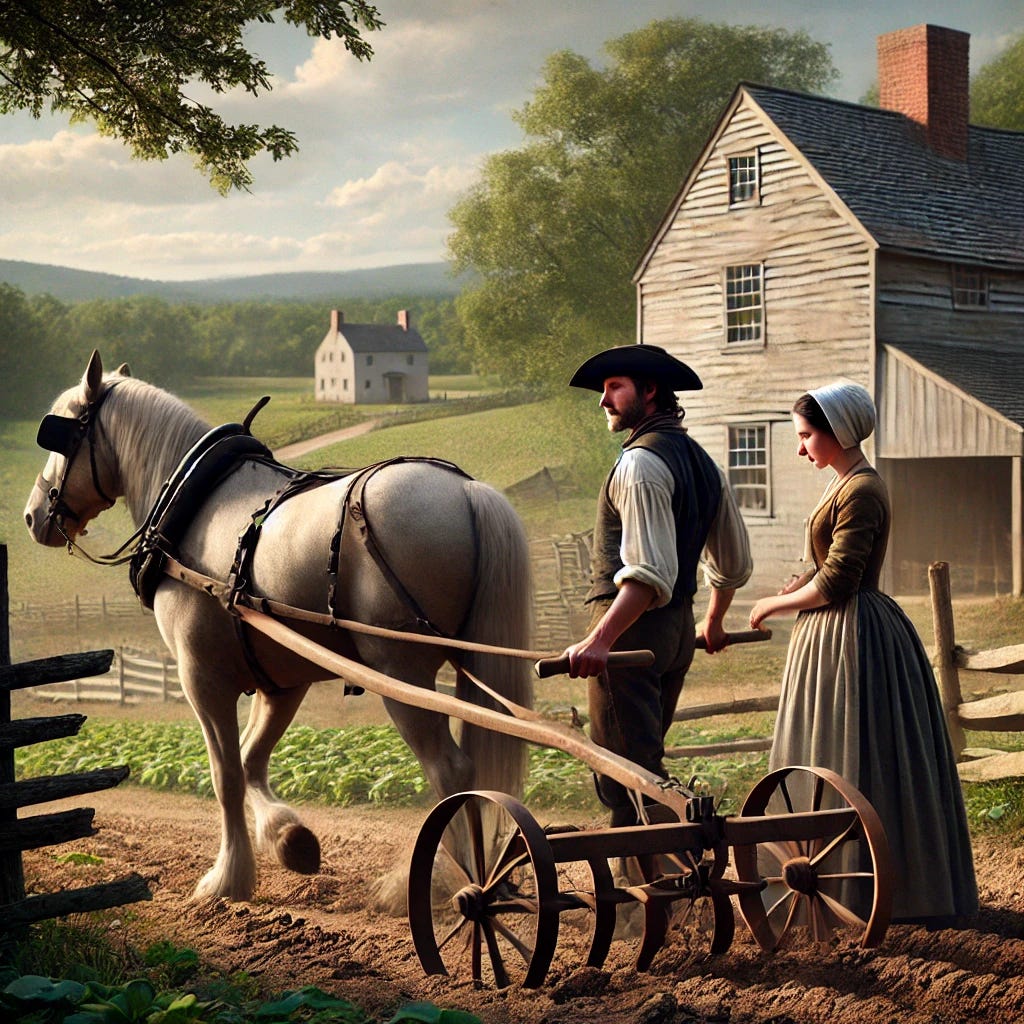
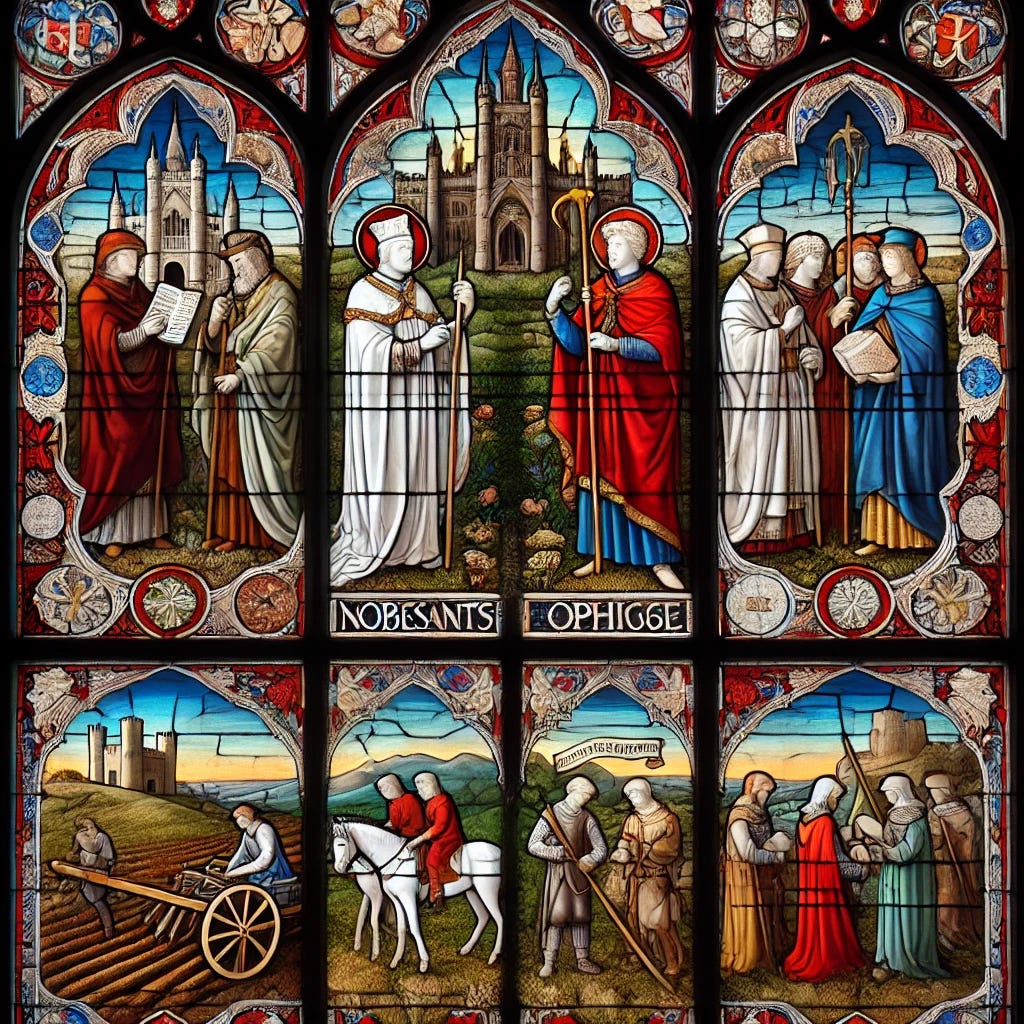
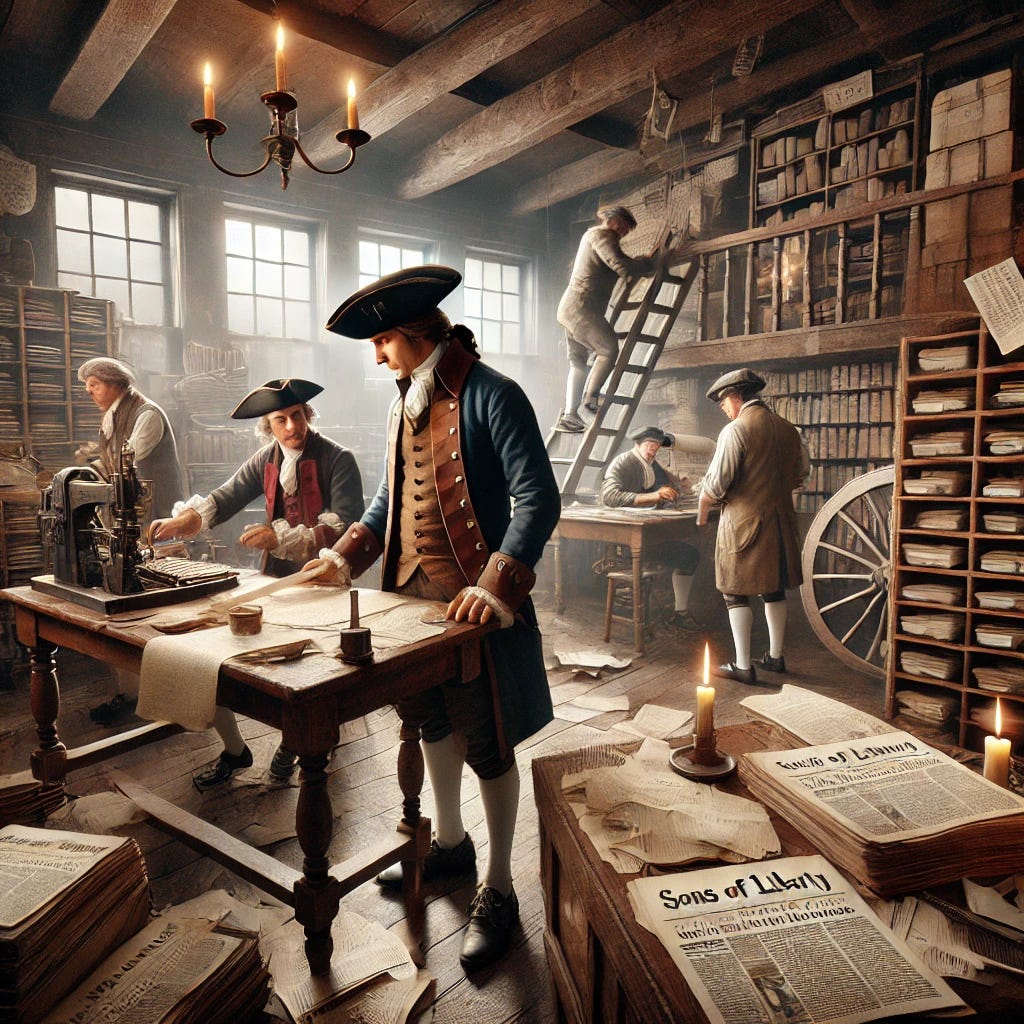
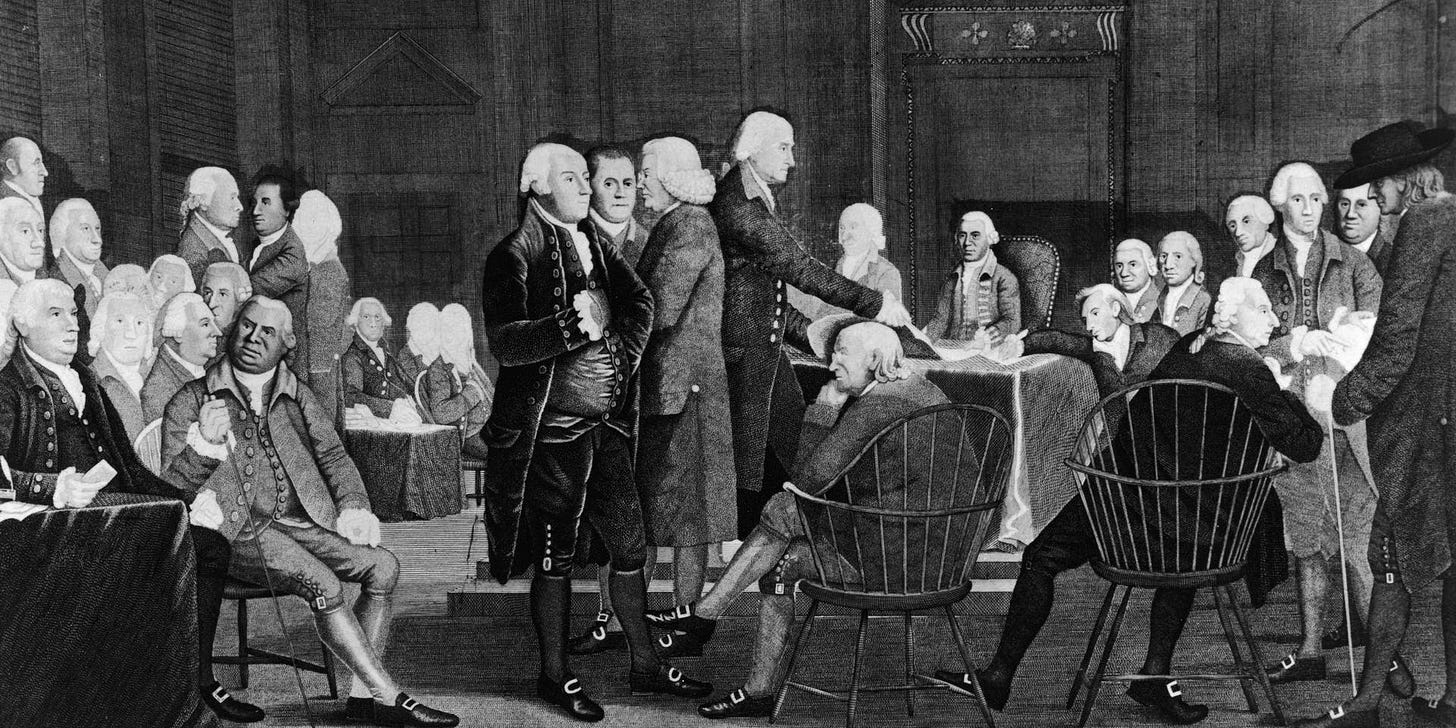
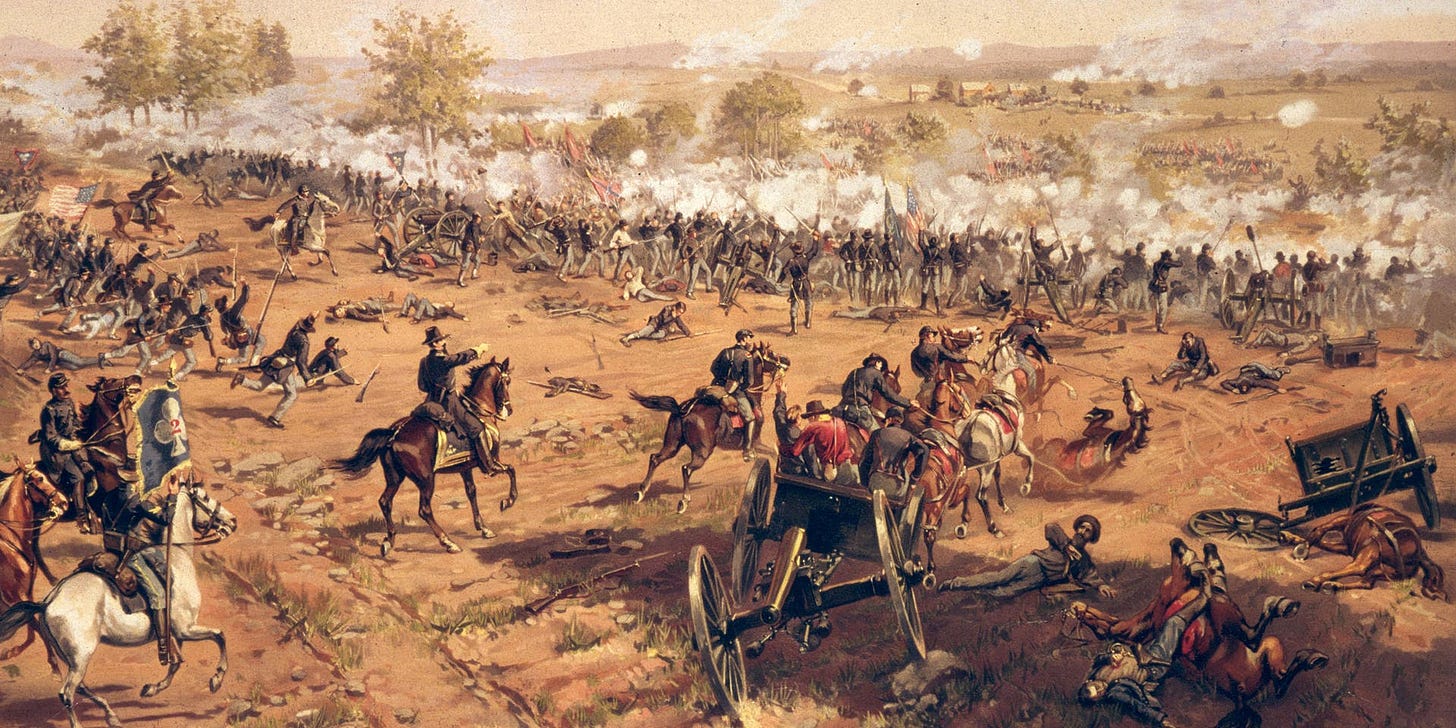
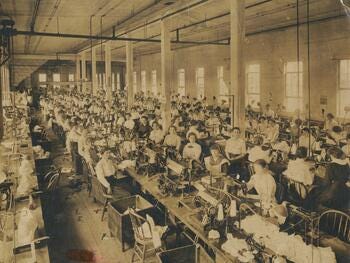
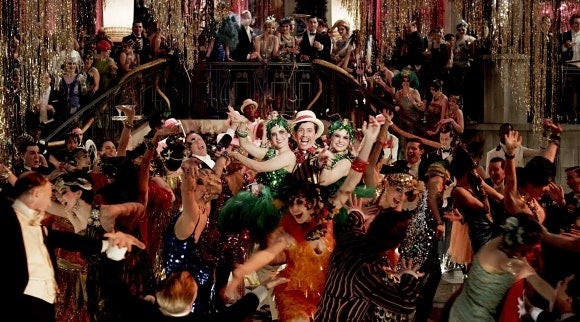
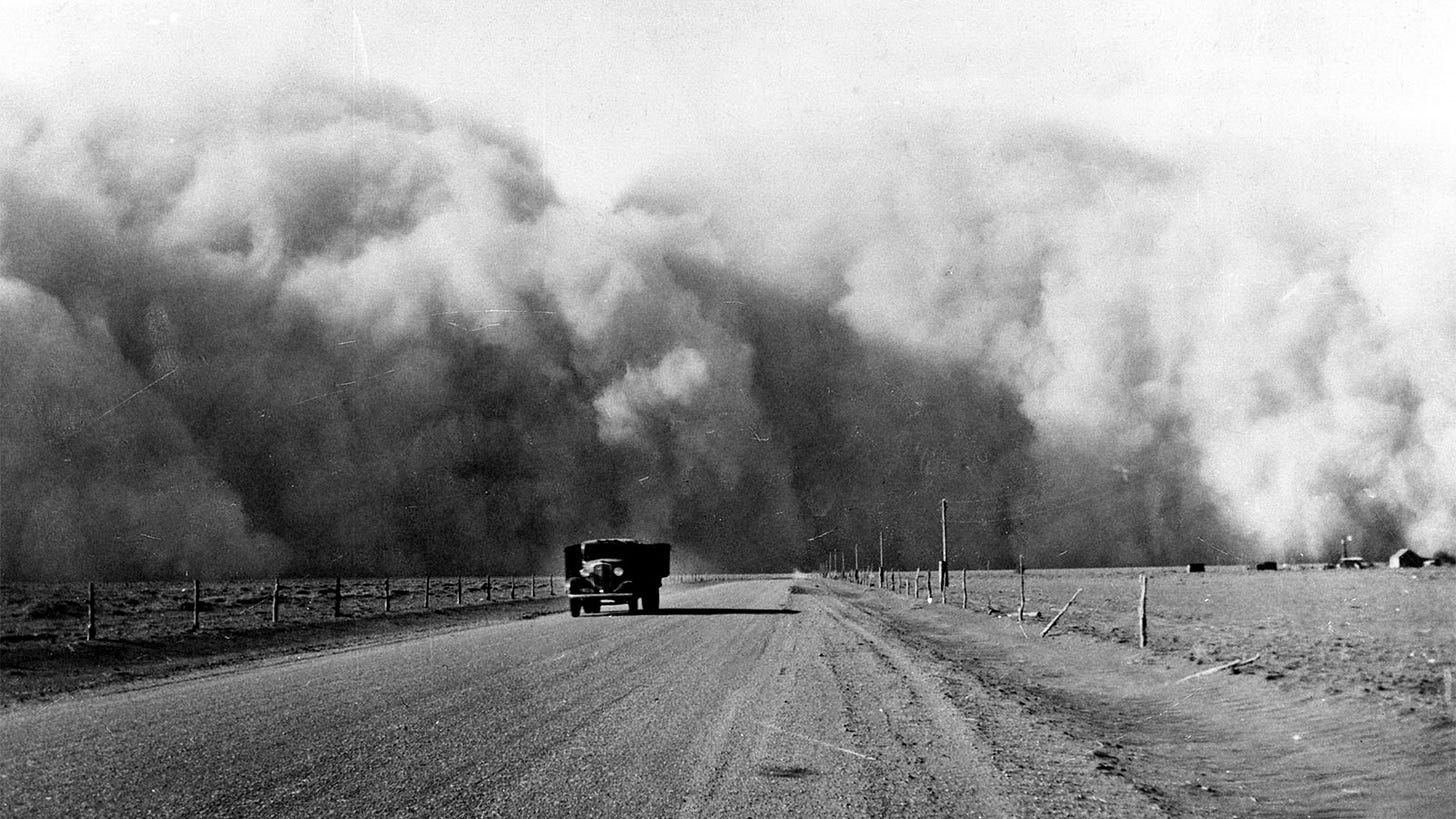

Well done. Love your optimism.
I would add:
1. some significant upgrades to the Standard American Diet.
2. a lot more IRL high quality interaction and way less time on FB, Insty, TikTok, Fox News, CNN, and YouTube.
3. a big campaign of Parenting Classes that would inspire young adults to take parenting as seriously as possible.
4. ways more fiscal discipline in congress.
Etc.
🤮
https://youtu.be/OfzLnItF6Oc?si=Hdck3wcIgMzYZbGd